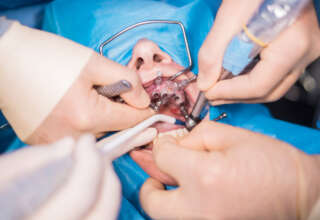
Allergic reactions can range from mild irritation to life-threatening emergencies. Severe allergic reactions, known as anaphylaxis, require immediate intervention to prevent serious complications. Being prepared to administer first aid can make a critical difference in saving lives. In this article, we’ll discuss essential first aid steps for dealing with severe allergic reactions.
Understanding Severe Allergic Reactions
Anaphylaxis is a severe allergic reaction that can occur within seconds or minutes of exposure to an allergen. Common triggers include certain foods (such as nuts, shellfish, and eggs), insect stings or bites, medications (such as penicillin and aspirin), and latex. Symptoms of anaphylaxis can vary but may include:
1. Skin Reactions
- Itching, hives, or rash
- Swelling of the face, lips, tongue, or throat
2. Respiratory Symptoms
- Difficulty breathing or wheezing
- Shortness of breath
- Swelling of the throat, leading to a feeling of tightness or choking
3. Cardiovascular Symptoms
- Rapid or weak pulse
- Dizziness or lightheadedness
- Loss of consciousness
First Aid Steps
1. Administer Epinephrine
If the person has been prescribed an epinephrine auto-injector (such as EpiPen), promptly administer the injection as directed. Epinephrine helps reverse the symptoms of anaphylaxis by constricting blood vessels and relaxing the airways, improving breathing and circulation.
2. Call Emergency Services
Even if the person has received epinephrine, call emergency services immediately. Anaphylaxis is a medical emergency that requires prompt medical attention. Do not delay calling for help, as the person may require additional treatment and monitoring.
3. Monitor Vital Signs
While waiting for emergency services to arrive, monitor the person’s vital signs, including their pulse, breathing, and level of consciousness. Be prepared to perform CPR if necessary.
4. Assist with Breathing
If the person is having difficulty breathing, help them sit up and lean forward to make breathing easier. If they have a prescribed inhaler for asthma or other respiratory conditions, assist them in using it.
5. Stay Calm and Reassure the Person
Remain calm and reassure the person experiencing the allergic reaction. Anxiety and stress can exacerbate symptoms, so it’s important to provide a calm and supportive environment.
Prevention Tips
1. Identify Triggers
Work with a healthcare provider to identify and avoid triggers that may cause severe allergic reactions. Keep a record of previous allergic reactions and share this information with healthcare providers and caregivers.
2. Carry Medications
If you have a history of severe allergies, carry prescribed medications, such as epinephrine auto-injectors, antihistamines, and inhalers, with you at all times. Make sure these medications are readily accessible and not expired.
3. Wear Medical Alert Identification
Wear a medical alert bracelet or necklace that indicates your allergies and medical conditions. This can help alert others to your condition in case of an emergency.
4. Educate Others
Educate family members, friends, coworkers, and caregivers about your allergies and how to recognize and respond to severe allergic reactions. Encourage them to familiarize themselves with the proper use of epinephrine auto-injectors.
5. Be Prepared
Be prepared to act quickly in the event of an allergic reaction. Know the signs and symptoms of anaphylaxis, and have a plan in place for seeking medical help if needed.
By being aware of the signs of severe allergic reactions and knowing how to respond effectively with first aid, you can help ensure the safety and well-being of yourself and others with allergies. Remember to act swiftly, stay calm, and seek medical attention promptly in case of an emergency.














